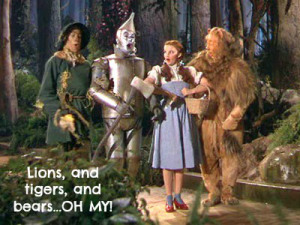Queries, Synopses, & Pacing- Oh My!
We dread query letters, synopses, and trying to get the pacing of the novel to flow ...just right. Here are some of my thoughts and what I've accumulated so far.
These three words have been my entire existence for a few months now! Pulling my hair out? What hair? It's gone already.
Queries: What have I learned? I've learned a great deal, actually.
These three words have been my entire existence for a few months now! Pulling my hair out? What hair? It's gone already.
Queries: What have I learned? I've learned a great deal, actually.
- Keep it short!
- When we begin this process, many of us start with the common phrase, "Query letter? What's that?" So we Google it...ah, Google my good friend... and our wise GoogleBot Guru tells us that a Query letter is a one-page letter wherein we pitch our book to an agent.- No sweat- One page. I can do that. Umm.. not as easy as it looks.
- Upon further research- and after a few rejections- we find that one-page stuff is nonsense. An agent doesn't want to read a whole page about your book. They want your book in a nutshell--an easily crackable nutshell with the meat of the nut in a ready to eat format that's already mostly digested.
- What does that mean? The best information I've found, so far anyway, is available in a free e-book here written by Agent Noah Lukeman.
- No names in the query--What? No names? But the agent has to know who my book is about. Mr. Lukeman explains how an agent reading a query has to pause or stop to absorb a name. They're going to judge and identify what they know about that name. You don't want them to pause or stop. He explains how it should flow with ease.
- Short and meaty-Mr. Lukeman breaks it down into three paragraphs, each of about three sentences long. Is it hard to do? Yes. It's not easy. But...it can be done, and when it's finished it makes for a quick yet interesting and catchy read.
- The 'hook'
- We read about the hook...but what does that even mean?
- We're fishing. Fishing for agents. Sometimes they bite, sometimes they don't, and just like fishing--you can't catch anything without a hook. --'Nuff Said'
- Research!
- Research, research, research. Know who represents your genre. Google EVERY agent who reps your genre. Hint: Just because Publisher's Marketplace says they rep your genre, it doesn't mean it's SPECIFICALLY what they're looking for.
- Read any interviews you can find
- MSWL (MANUSCRIPT WISH LIST) -- I love these sites because you can see, very specifically, what an agent wants to find.
- A great diagram I found and posted to Twitter outlines some of this.
- Some of the best advice I've found comes from an article in Writers Digest by Kaitlyn Johnson.
- Beginning: Who is the character? What world do they live in? Why is she the lead of this novel?
- Drama: What happens to stir things up? Is a love interested introduced? Does someone get kidnapped or learn of their magical powers?
- Next steps: You must include consequences or results of the drama. Whether it be a quest, rebellion, road trip, or family intervention, the reader must know what the main character intends to do about their situation.
- Stakes. What is at risk for the main character or those close to them? This is what drives most of the choices in your book, so you better believe the reader needs to know them.
- Climax. Where does the height of tension or action occur? What leads up to it and what follows? Keep this section clear and point-blank. Over-excessive explanation can unnecessarily lengthen your synopsis and also confuse the reader as to how the book actually progresses.
- Ending. I know, I know, every fiber of your being is fighting against this. My ending isn’t meant to be unveiled before a reader enjoys the whole journey! Guess what? If you jump the shark anywhere in your book, an agent or editor wants to know.
- What I've learned?
- It's genre dependent
- A Scifi novel will be paced differently from a romance novel, so on and so forth.
- A novel geared toward adults will be paced differently than a YA or MG novel. Seems intuitive, but when you get down to the nuts and bolts of it, it's the art of telling a story in a way your reader WANTS to read it.
- It depends on your style of writing
- It depends on YOU. Only you can tell your story.


Comments
Post a Comment